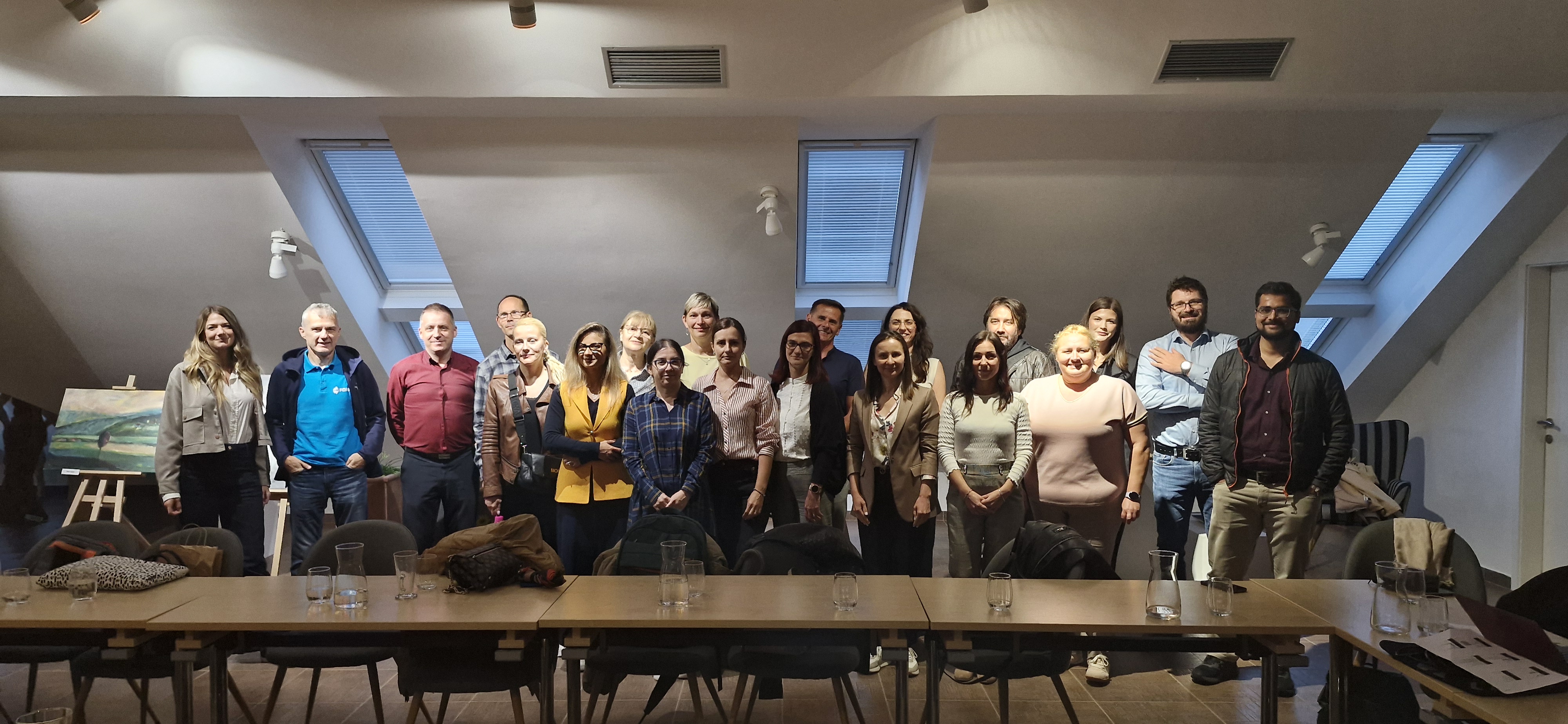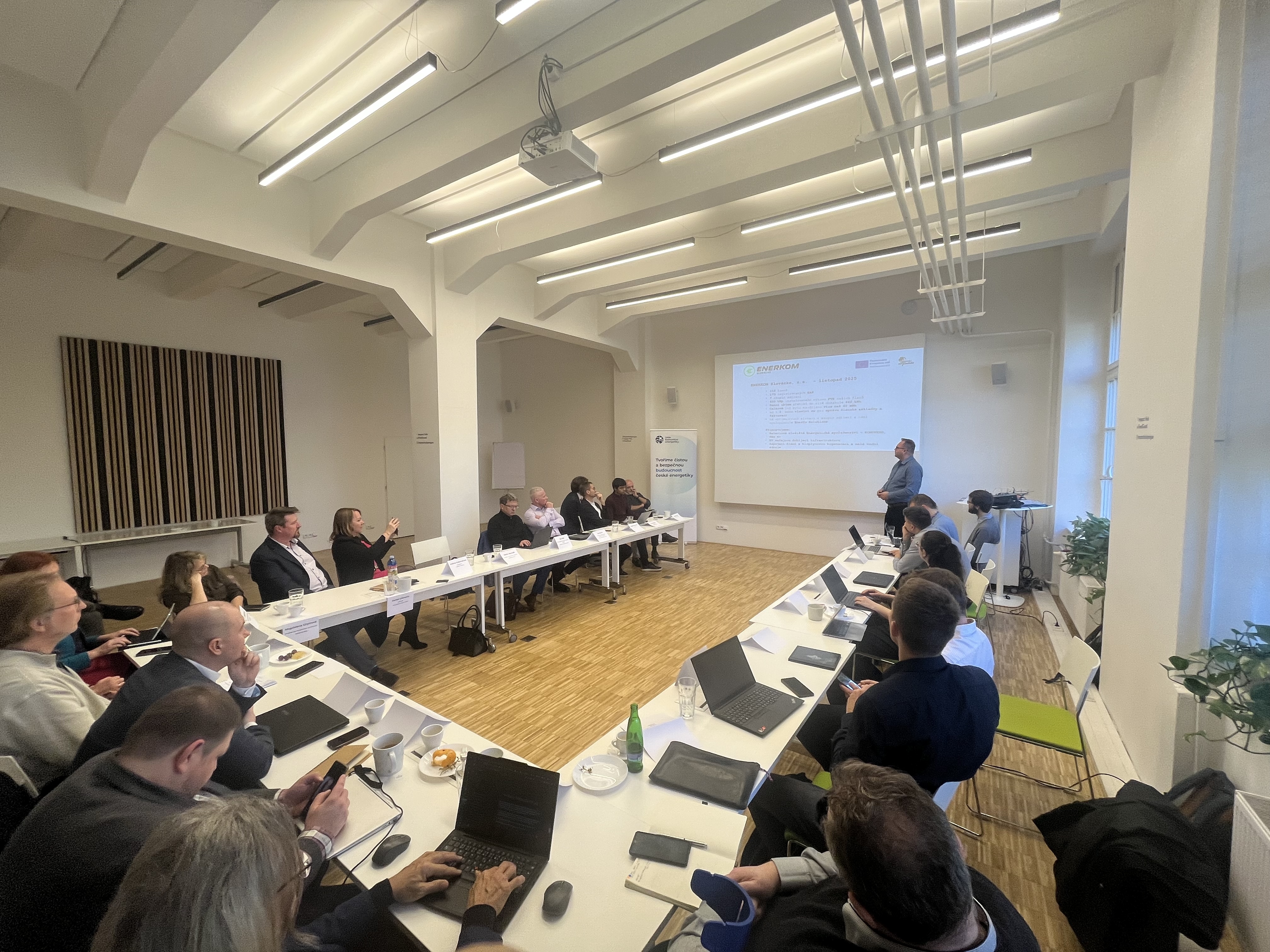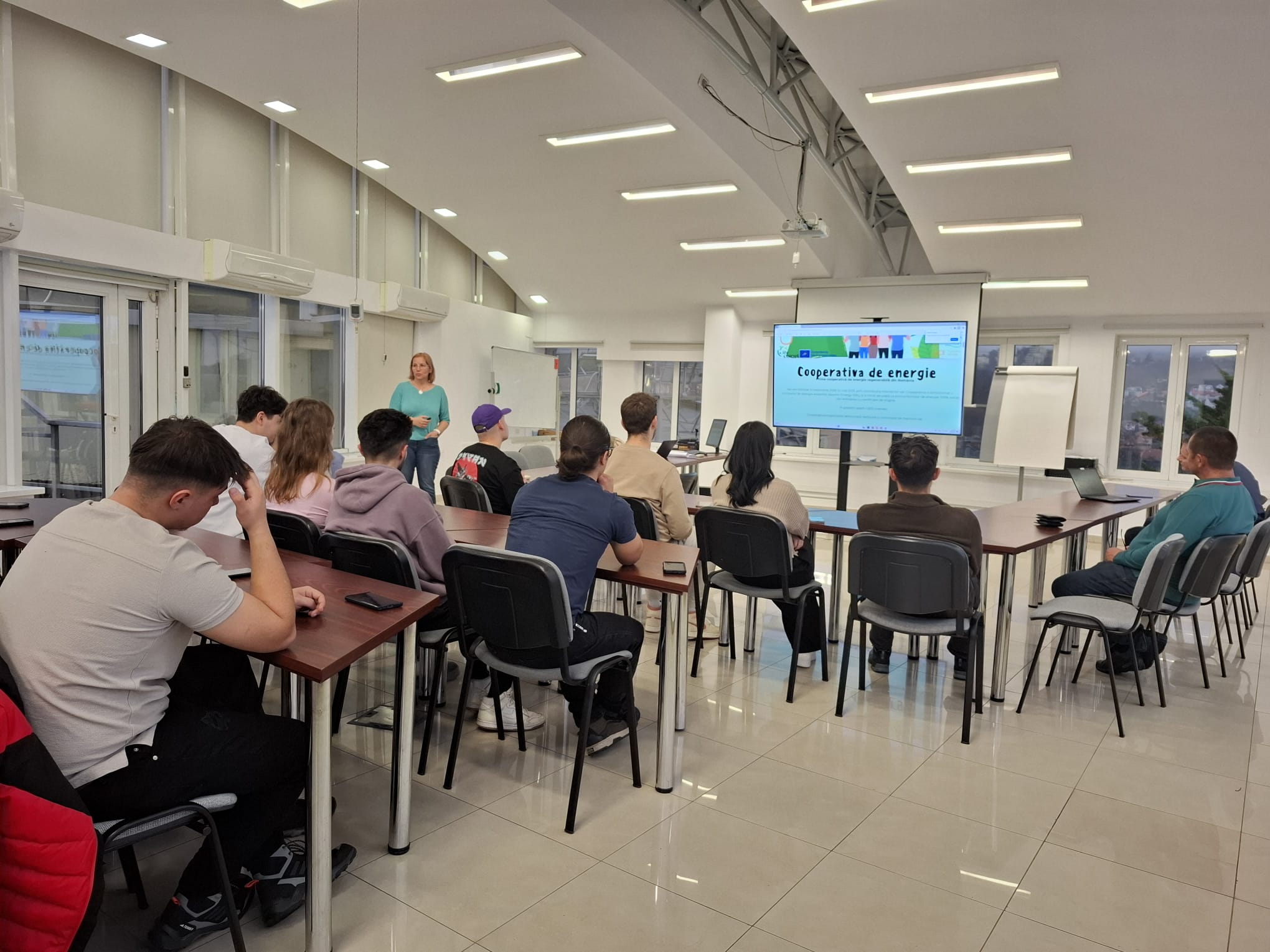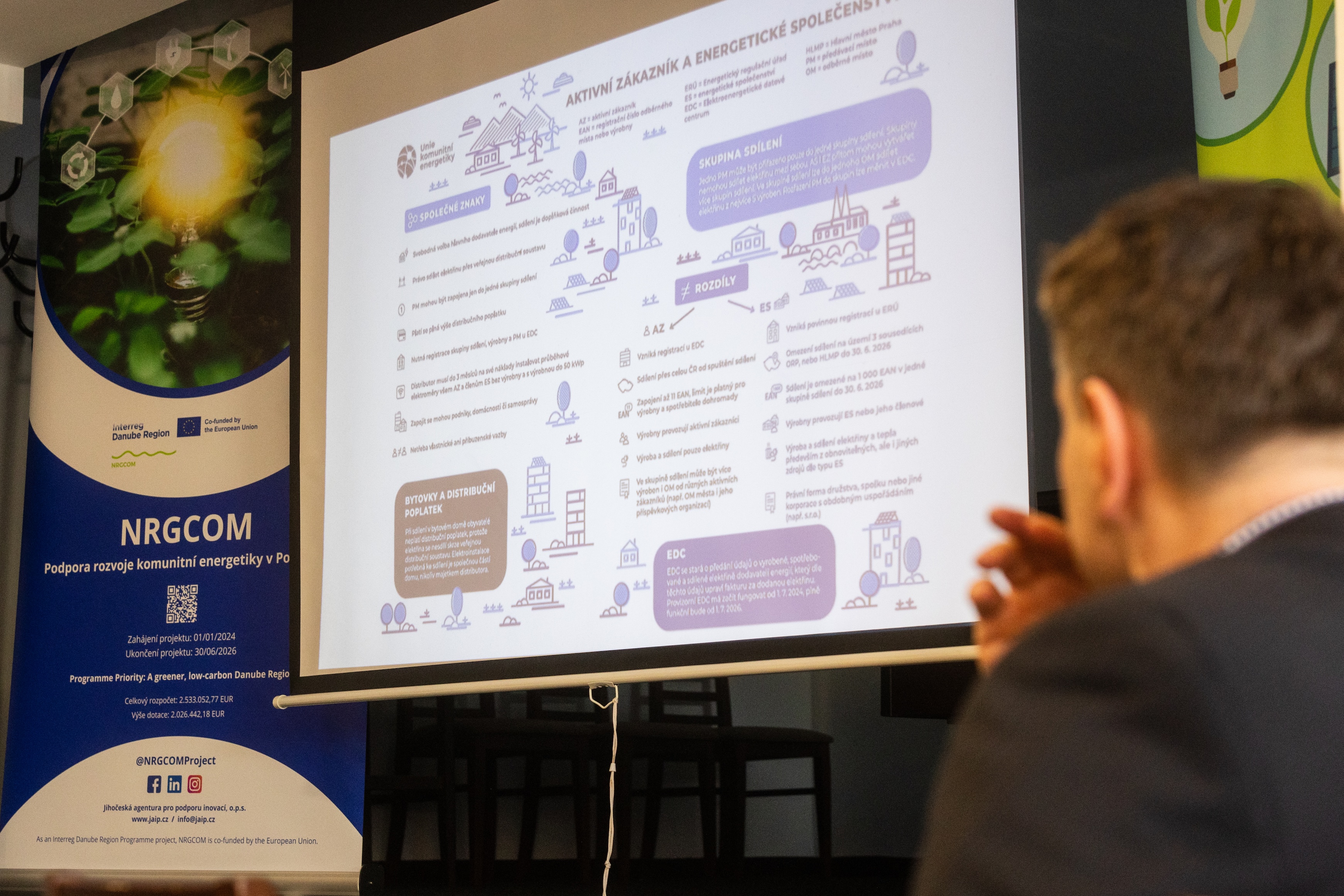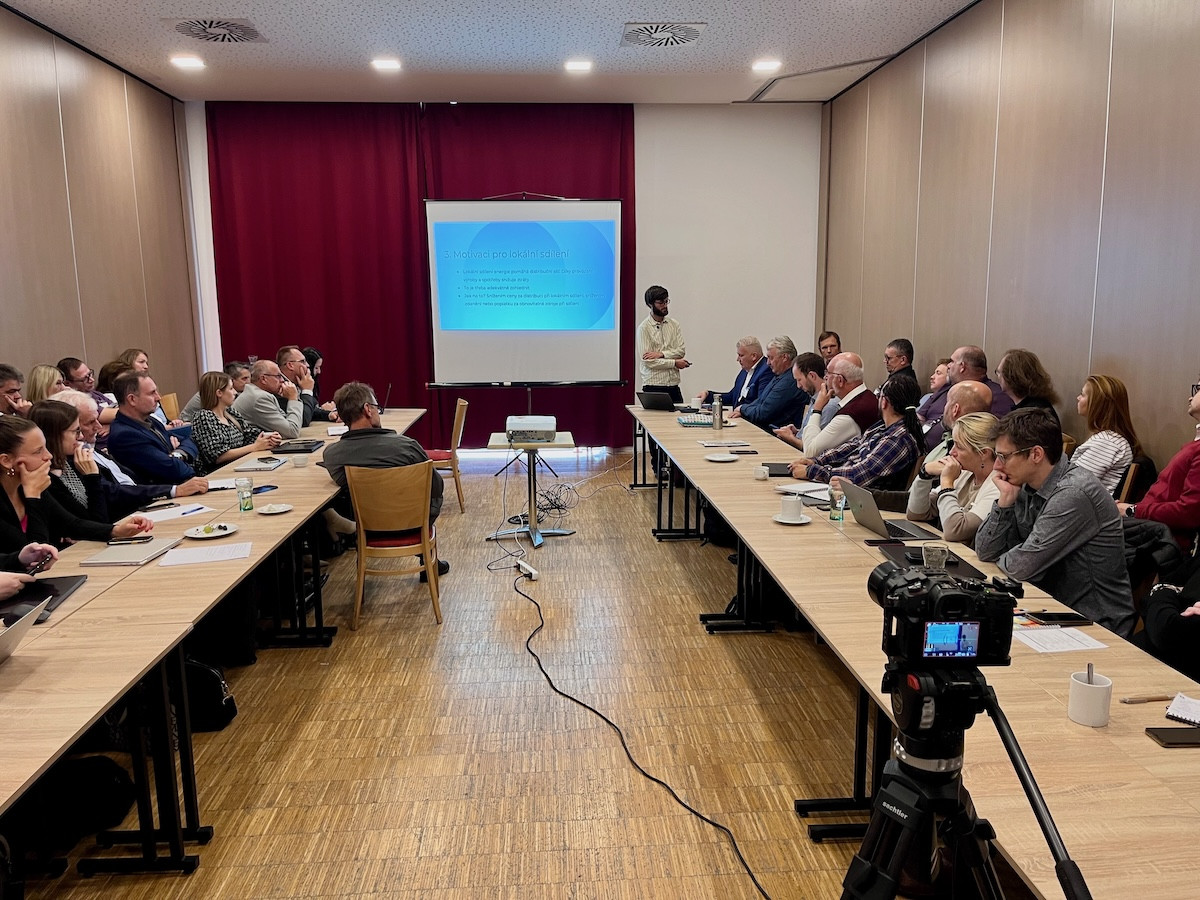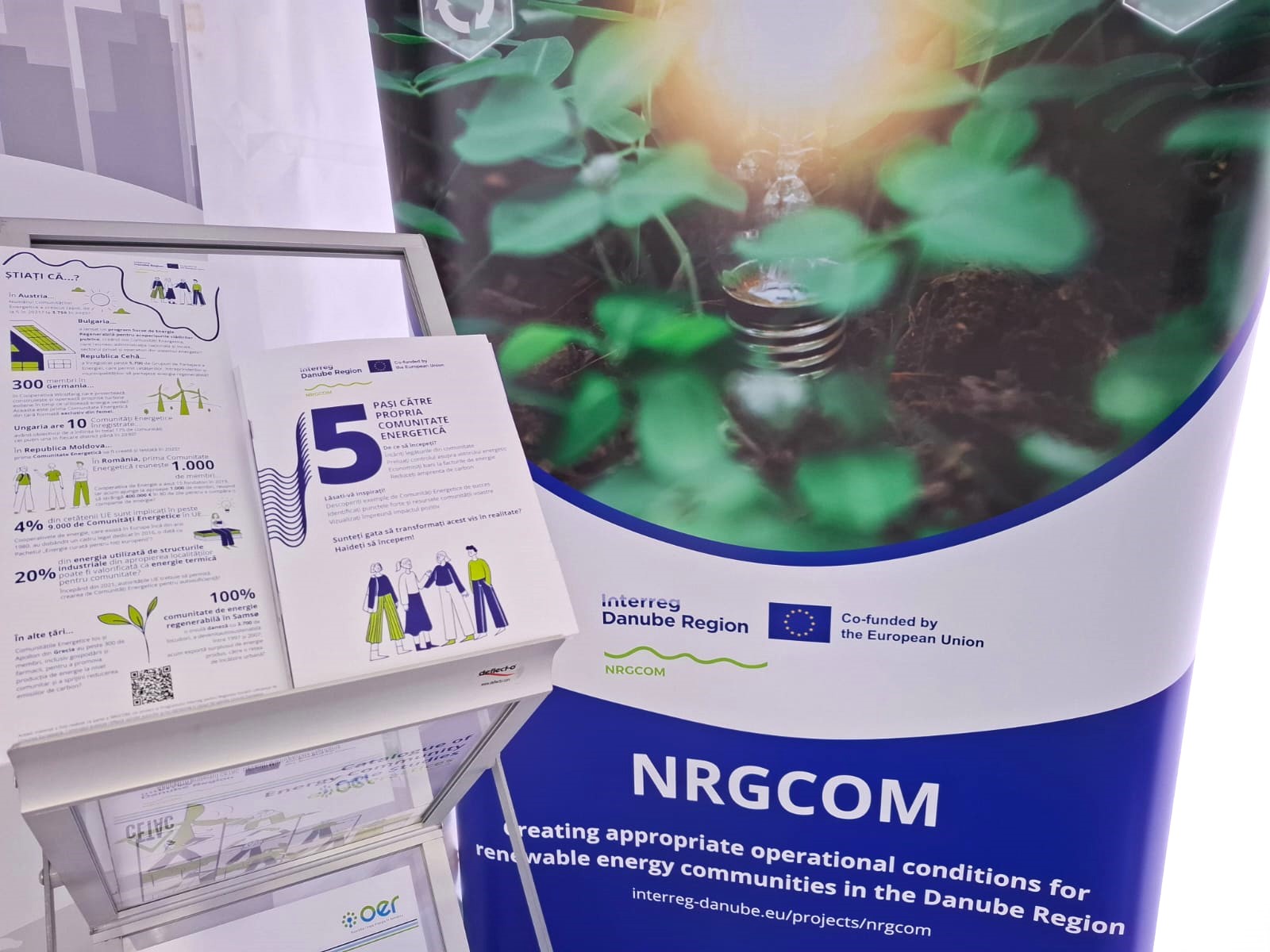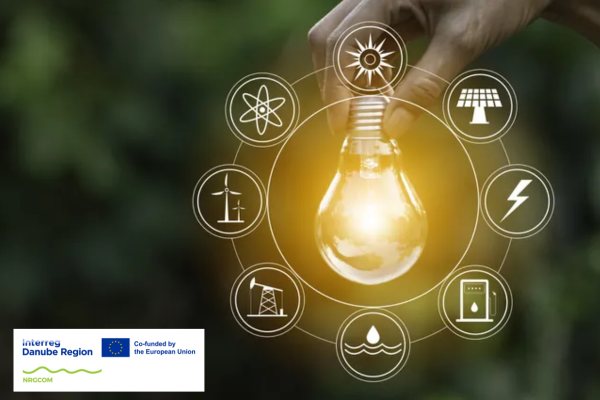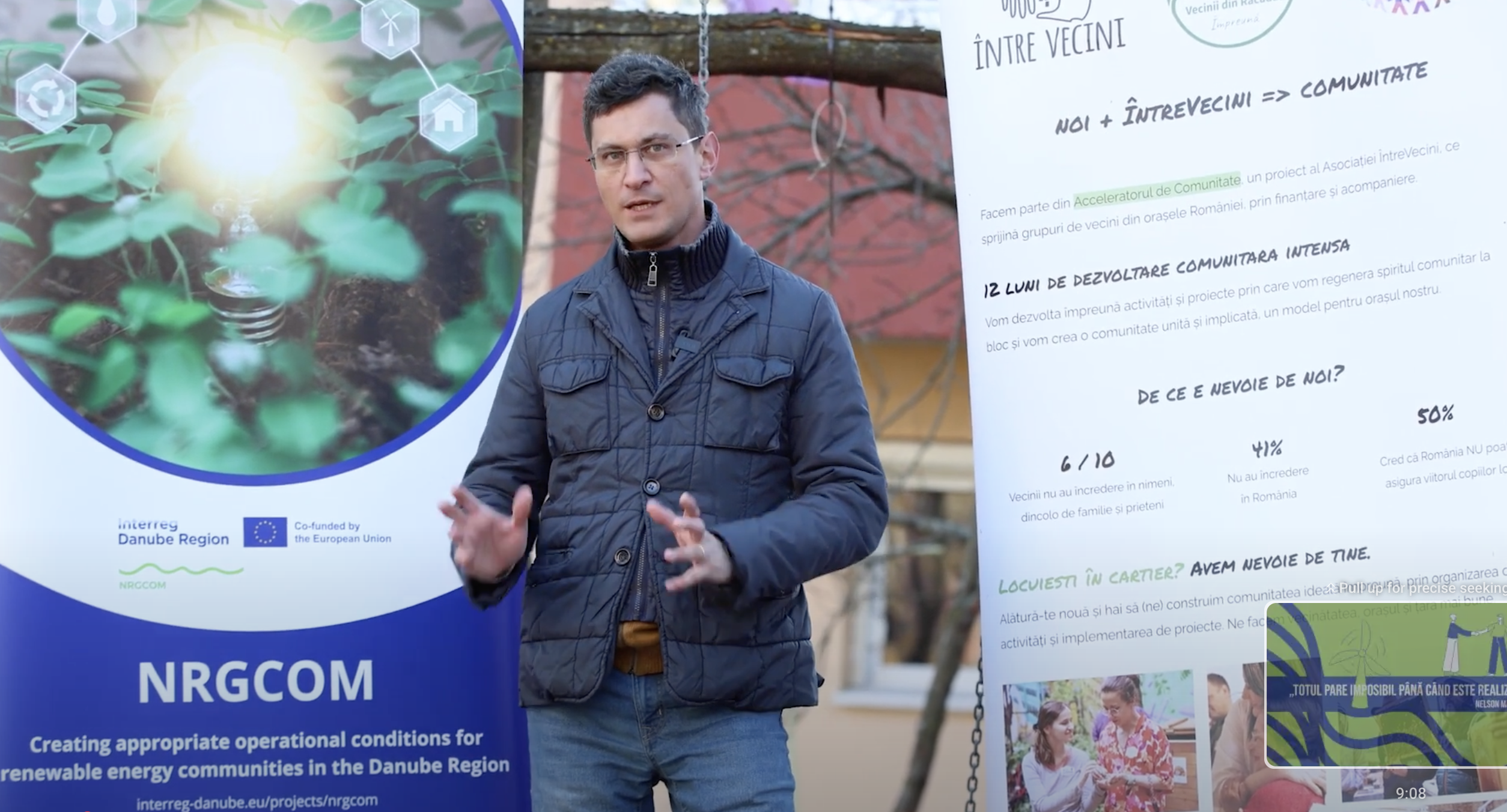
ANRE Proposes New Models for Energy Communities in Romania
The National Authority for Energy Regulation in Romania (ANRE) has unveiled two innovative models for energy communities as part of a public consultation, designed to support the development of Citizen Energy Communities (CEC) and Renewable Energy Communities (REC). These models offer a robust framework to democratize energy production and empower local communities to generate, manage, and consume their own renewable energy. The initiative is an important step toward decentralizing energy systems, a goal that aligns closely with the objectives of the NRGCOM Project, a key partner in fostering energy communities across the Danube Region.
The first proposed model, Energy Community with a License, requires energy communities to obtain a license and sell electricity to their members through formal contracts. While this offers direct benefits to community members, it also imposes several legal obligations, including providing general customer information, managing contracts, and coordinating with other suppliers in cases of multiple energy sources. The second model, Energy Community without a License, allows communities to sell energy on the open market without requiring a supply license. However, this model limits direct sales to community members.
These models aim to create flexibility for energy communities while ensuring compliance with existing regulations, ultimately contributing to the decentralization and democratization of energy in Romania and across Europe.
Since the beginning of 2024, over 9,000 energy communities have been established across the European Union, involving more than 1.5 million citizens. These communities play an essential role in reducing reliance on centralized energy production and enabling citizens to participate actively in the green transition. To support this, the EU Energy Communities Repository has created a roadmap outlining key elements to ensure the success of energy communities, including clear definitions, access to financing, and minimum regulatory conditions.
Commenting on the development, Magdalena Neicu, a representative from the OER (Organization for Renewable Energy) and a key partner in the NRGCOM Project, stated: “Creating a favorable environment for energy communities is one of the core objectives of the NRGCOM Project. We are working closely with stakeholders across the Danube Region to ensure that the legal and regulatory frameworks in place not only comply with EU standards but also encourage the growth and sustainability of energy communities.”
The NRGCOM Project is committed to continuing this important dialogue. In this regard, we are pleased to invite stakeholders and interested parties to join our forthcoming roundtable events:
- Round Table 2: Operational and Financial Environment of a Successful Energy Community in the Danube Region”, September 20, 2024 - learn more here.
- Round Table 3: “Socialization and Good Governance of a Successful Energy Community in the Danube Region”, October 10, 2024 - learn more here.
Both events will further explore the operational, financial, and governance aspects of energy communities, offering valuable insights and collaborative opportunities for stakeholders across the Danube Region and beyond.

News & Events
Read the most recent updates and explore the upcoming events.

